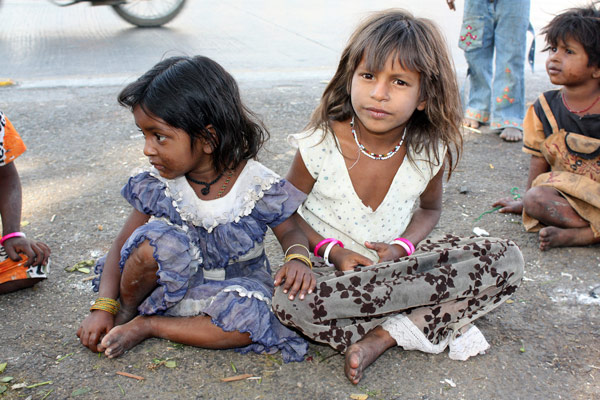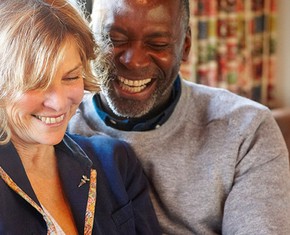The views expressed in our content reflect individual perspectives and do not represent the authoritative views of the Baha'i Faith.
..if every clan, tribe, community, every nation, country, territory on earth should come together under the single-hued pavilion of the oneness of mankind, and by the dazzling rays of the Sun of Truth should proclaim the universality of man; if they should cause all nations and all creeds to open wide their arms to one another, establish a World Council, and proceed to bind the members of society one to another by strong mutual ties, what would happen then? – Abdu’l-Baha, Selections from the Writings of Abdu’l-Baha, pp. 279-280.
This series of articles takes the futuristic vision of the movement called the Baha’i Faith, founded by the Persian nobleman Baha’u’llah in middle of the 19th century, and applies that vision toward imagining what our global society could look like a generation from now. The Baha’i Faith, a rapidly-expanding, recognized independent worldwide religion with more than five million adherents in almost every country and principality on the planet, has one simple (but not simplistic) watchword from Baha’u’llah: The earth is but one country, and mankind its citizens.
Let’s try to visualize it: twenty-five years have passed, and much of the world has now achieved a conscious adulthood, finally climbing out of its turbulent period of adolescence–but only after severe trials and tribulations that affect all peoples and all of their institutions.
The old politics of polarization and divisiveness, corrupt and preferential governmental policies, deep indifference to the poor and uneducated, and the pursuit of wealth as a means to an end at all costs have been exposed as vacuous and destructive, and the combined efforts of citizens and governments have relegated them to the dustbin of history. Collective global security guaranteed by a democratically-elected World Council provides peace and stability at all levels of society. Most of the world’s governments have now based their structures on the principles of federalism and democracy, and have agreed on definitive national borders and a steep voluntary reduction in their armaments and armies. Nation building has ended, and the era of a unified world has begun.
As documented in those farsighted early 21st-Century books The Secret Peace and The Better Angels of Our Nature: Why Violence Has Declined, human conditions have steadily improved, and fairer policies and practices have been instituted in many aspects of life. We still have work to do, but violence has declined even more significantly than before, and global governance has begun to prevent wars.
Over time, as peace spreads across more of the earth, a moderating influence has started to positively affect human relations, based on noble human values such as love, justice, equity and social welfare. Governments increasingly heed the voices of their previously silent masses, silent no longer. Because freedom of expression, consultation and consensus now govern social relationships, we have achieved more timely and effective problem-solving, which has led to increased social good in all regions of the world, and continues to benefit the world’s poorest people. The demilitarization of the world’s nations, and the World Council’s largely successful peacemaking efforts in regions where conflict has reigned, have both brought about a steep decline in the huge amounts of money previously spent on war and defense.
 Those funds now go to feed, clothe and educate all the world’s children.
Those funds now go to feed, clothe and educate all the world’s children.
In this new world a generation from now, men and women are increasingly equal, and have equal rights, equal pay and equal representation in government. Human prejudices—racial, religious, national, and all others—are disappearing.
Moderate policies across many sectors of society have created organizational stability and reliability in free markets. The new global currency and a universally-agreed-upon system of weights and measures have made worldwide trade more efficient, fairer and more possible. As the peoples of the world learn the international auxiliary language along with their own native language, ease of communication increases, and misunderstandings and foreignness decrease. The earth’s pressing environmental problems, although still acute, have finally begun to reverse themselves as a result of national and global cooperation—rather than the infighting, rivalries and blaming that hampered progress in past decades.
From a personal perspective, people have noticed that a kindly tongue increasingly replaces invective, backbiting, gossip and verbal violence in all their forms. With national and regional peace treaties proliferating and all forms of violence and conflict declining rapidly, individual conflict and criminality has also diminished greatly. The world has seen a great upsurge in the number of people conducting their own independent investigation of the truth; going beyond tradition and deciding on their spiritual paths themselves. More and more, the goal of all human interaction leans toward mutual agreement based on truthfulness and equity.
Does this sound possible—or does it seem like a pipe dream?
The Baha’i teachings say that humanity has the ability, the power and the inspiration to reach these lofty goals:
Unification of the whole of mankind is the hall-mark of the stage which human society is now approaching. Unity of family, of tribe, of city-state, and nation have been successively attempted and fully established. World unity is the goal towards which a harassed humanity is striving. Nation-building has come to an end. The anarchy inherent in state sovereignty is moving towards a climax. A world, growing to maturity, must abandon this fetish, recognize the oneness and wholeness of human relationships, and establish once for all the machinery that can best incarnate this fundamental principle of its life. – Shoghi Effendi, The World Order of Baha’u’llah, p. 202.
















Comments
Sign in or create an account
Continue with Googleor